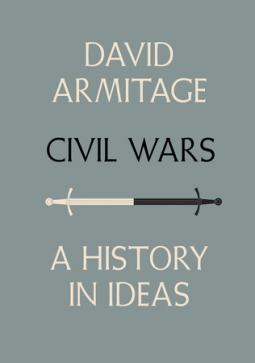Please wait... This may take a moment.
Civil Wars
A History in Ideas
This title was previously available on NetGalley and is now archived.
Pub Date
Feb 07 2017
| Archive Date
Feb 14 2017
Description
From the Balkans to Rwanda, Afghanistan, Iraq, South Sudan, and most recently Syria, civil conflict has exploded across the globe. In the West, politics itself looks ever more like civil war by other means. At such a charged time, David Armitage’s unique perspective on the origins and dynamics of this phenomenon is indispensable. His highly original history traces this least understood and most intractable form of organized human aggression from ancient Rome through the centuries to the present day.
Ideas of what civil war is, and what it isn’t, have a long and contested history. Defining the term is an acutely political act: whether a war is “civil” often depends on whether one is a ruler or a rebel, victor or vanquished, participant or foreigner. Likewise, calling any particular conflict a civil war can shape its outcome by determining whether other nations choose to get involved or stand aside. This is true of many conflicts: from the American Revolution (commonly referred to as a civil war as it was waged) to the U.S. Civil War to the Second Gulf War. In each, pivotal decisions by outside powers turned on precisely such shifts of perspective.
In Civil Wars, eminent historian David Armitage offers invaluable illumination. By touching on significant developments in Western thought—the poetry of Lucan, the political theory of Thomas Hobbes, the so-called Lieber Code produced during the U.S. Civil War, to name a few—he creates a “genealogy” of our sometimes contradictory notions about civil war. The result reveals much about how this intellectual inheritance has shaped the political fortunes of our uneasy world and how we might think about this form of violence in the future.
From the Balkans to Rwanda, Afghanistan, Iraq, South Sudan, and most recently Syria, civil conflict has exploded across the globe. In the West, politics itself looks ever more like civil war by other...
Description
From the Balkans to Rwanda, Afghanistan, Iraq, South Sudan, and most recently Syria, civil conflict has exploded across the globe. In the West, politics itself looks ever more like civil war by other means. At such a charged time, David Armitage’s unique perspective on the origins and dynamics of this phenomenon is indispensable. His highly original history traces this least understood and most intractable form of organized human aggression from ancient Rome through the centuries to the present day.
Ideas of what civil war is, and what it isn’t, have a long and contested history. Defining the term is an acutely political act: whether a war is “civil” often depends on whether one is a ruler or a rebel, victor or vanquished, participant or foreigner. Likewise, calling any particular conflict a civil war can shape its outcome by determining whether other nations choose to get involved or stand aside. This is true of many conflicts: from the American Revolution (commonly referred to as a civil war as it was waged) to the U.S. Civil War to the Second Gulf War. In each, pivotal decisions by outside powers turned on precisely such shifts of perspective.
In Civil Wars, eminent historian David Armitage offers invaluable illumination. By touching on significant developments in Western thought—the poetry of Lucan, the political theory of Thomas Hobbes, the so-called Lieber Code produced during the U.S. Civil War, to name a few—he creates a “genealogy” of our sometimes contradictory notions about civil war. The result reveals much about how this intellectual inheritance has shaped the political fortunes of our uneasy world and how we might think about this form of violence in the future.
Available Editions
| EDITION |
Other Format |
| ISBN |
9780670069675 |
| PRICE |
CA$34.95 (CAD)
|
| PAGES |
368
|
Additional Information
Available Editions
| EDITION |
Other Format |
| ISBN |
9780670069675 |
| PRICE |
CA$34.95 (CAD)
|
| PAGES |
368
|
Average rating from 1 member




